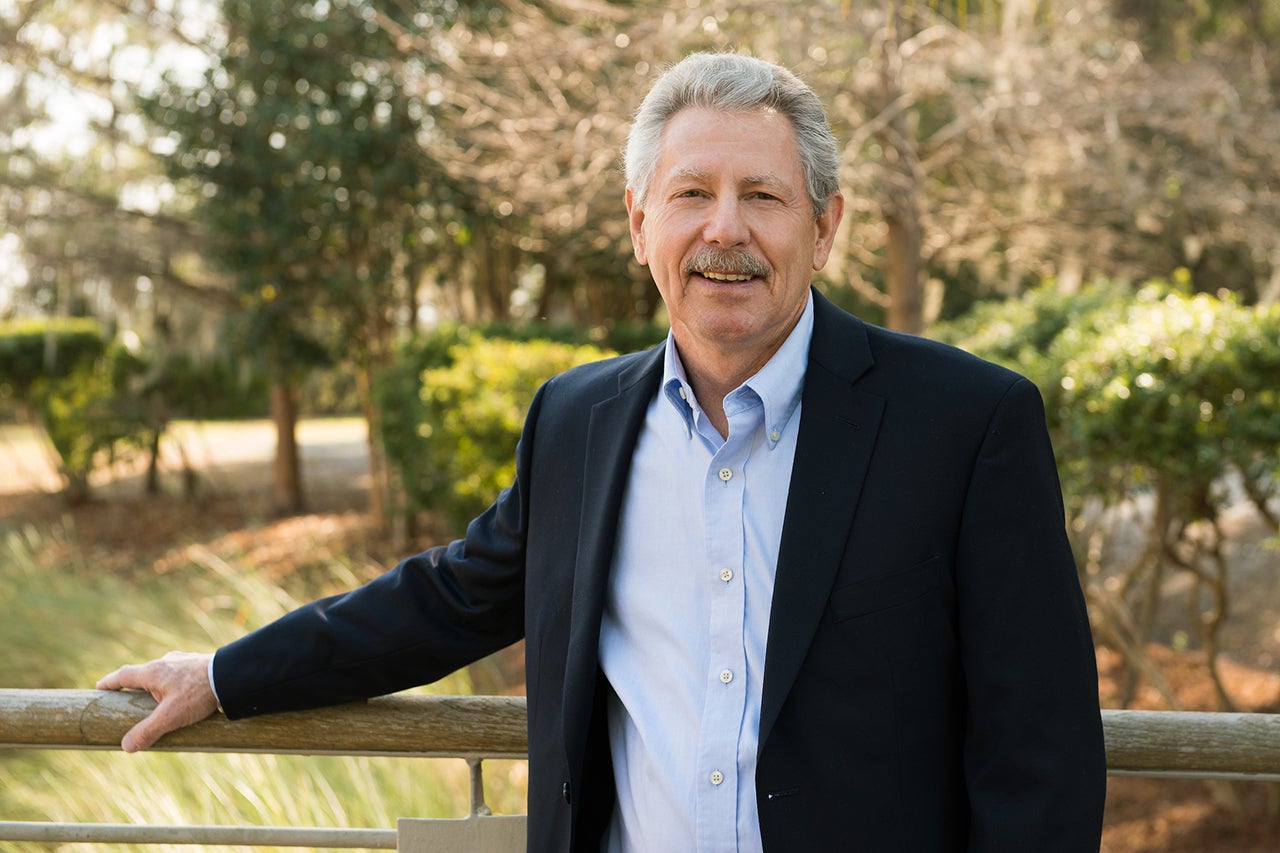One of the most promising areas of research for residents in South Carolina’s Lowcountry is the intersection of human health and the coastal environment.
It’s a nexus that excites Paul Sandifer ’68, a marine scientist, self-described coastal ecologist and as of last August, founding director for the College’s new Center for Coastal Environmental and Human Health. Sandifer is a strong proponent of the notion that good things happen when dissimilar disciplines are brought together. In fact, that’s one of the key concepts underlying this new center.
“Our intention,” explains Sandifer, “is that the center serve as an important point of contact for faculty whose research specialties include aspects of the intersection between the coastal environment and human health.”
It’s natural, he says, that the center benefit the College’s existing programs in marine biology, environmental studies and public health, but he says it has the potential to impact areas well beyond those spheres.
“We want to find ways to better connect these programs and others,” he says. “We want to share resources and connect courses and develop new curricular materials as well as find ways to incorporate visiting faculty and make research connections that don’t already exist. Like any college or university, people working full time here tend to get focused on what they’re doing and may not know that the person across the hall or across campus is working on something potentially complementary. The center will provide some additional connective tissue to realize that potential and build interdisciplinary teams.”
Sandifer has long been interested in the unique nexus where the coastal environment, humans and health intersect. For over three decades he worked for the South Carolina Department of Natural Resources, mostly at the Marine Resources Center at Fort Johnson and finished his career there as the agency’s director. He retired from DNR and went to work for the National Oceanographic and Atmospheric Administration as a senior scientist for the next 12 years before retiring again. He also served as a presidential appointee to the U.S. Commission on Ocean Policy.
One area of special interest to him is research that deals with the health-enhancing effects of exposure to nature and coastal nature in particular. Sandifer notes that “much of the research in this field has been psychological in nature, pertaining to the recovery and restoration that one gets from being in nature, walking in the forest or being on the beach or enjoying the sunset, etc. However, there’s a growing body of physiological data indicating that exposure to certain kinds of environments – including biodiverse nature and coastal areas – has considerable potential for improving or promoting good health, educational achievement and positive behaviors. There is great potential to use the results from this kind of research to help with recovery from traumatic events such as hurricanes, other extreme weather events and oil spills, etc.”
Though the center is only in its infancy, Sandifer is convinced that it has significant potential.
“Charleston is a unique gem,” he says. “We’re situated between large expanses of undeveloped coastal areas (including the ACE Basin and its National Estuarine Research Reserve and its National Wildlife Refuge to the south, and Capers Island, the Francis Marion Forest, Cape Romain National Wildlife Refuge, the Winyah Bay National Estuarine Research Reserve to the north). The potential value of those resources to enhance human well-being is enormous, along with the ocean as well. And we also have a burgeoning medical and public health community here with MUSC, Roper and Trident, which provide additional opportunities for programmatic connections. So the stage is set for so much to be explored about how the coastal environment where we live, work and study affects us in positive ways.”
In the near term, Sandifer says that he and Dean Mike Auerbach of the School of Sciences and Mathematics hope that the center will offer some assistantships for students that will enable them to participate actively in research.
“We hope we can raise funds to support students attending research conferences, too,” Sandifer says. “That can be very formative because you learn so much about a particular field when you attend conferences and you get a much better idea of professional opportunities. We also want the center to support internships for students.”
What’s best about the new center, says Sandifer, is that it’s an opportunity for nearly the entire campus.
“There really isn’t a downside,” he says. “The center isn’t competing with anything that anyone else is currently doing, but it does present the opportunity to augment the work of others.”




